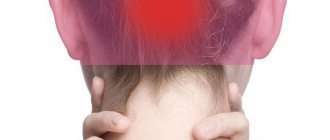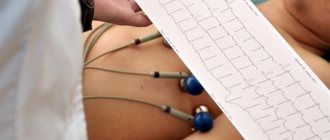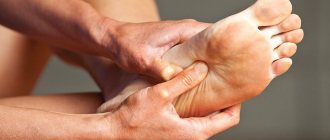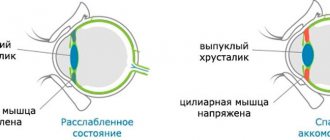Causes of weakness
Wrong daily routine
Natural reasons that cause weakness are non-compliance with the daily routine, working seven days a week for 10-12 hours a day. Malaise is more often observed in middle-aged and older people, whose body is more difficult to adapt to overload. Fatigue occurs in the late afternoon after a hard day of work: general weakness, drowsiness, and heaviness in the muscles of the legs and arms appear. The condition is aggravated by a lack of sleep at night, in which case discomfort and powerlessness persist even in the morning. Similar symptoms occur in people who have to work night shifts.
Dehydration
With a lack of fluid, the work of the heart muscle is disrupted, vascular tone changes, blood circulation in the brain worsens, which is why general malaise develops. Fluid loss of up to 5% of body weight only slightly worsens the general condition: dry mouth, weakness in the legs, and poor exercise tolerance. Massive dehydration is caused by pathological causes: bleeding, generalized hyperhidrosis. In this case, weakness, dizziness and darkening of the eyes are observed; in the most severe cases, the patient cannot move his arms and legs.
Avitaminosis
For coordinated work, the body needs all microelements and vitamins, and the first sign of vitamin deficiency is nonspecific malaise. Most often, symptoms are caused by a lack of vitamin B12, which is involved in the process of hematopoiesis. With hypovitaminosis B12, there is severe weakness, intolerance to physical labor, typically flashing “spots” before the eyes and frequent dizziness. The patient's appearance changes: the skin becomes pale, the tongue becomes bright red, shiny, the nasolabial triangle turns blue.
With vitamin D deficiency, severe weakness in the muscles predominantly develops; muscle tremors appear when trying to play sports or even walk quickly. This cause of malaise is characterized by increased symptoms in the autumn-winter period, when daylight hours are short, and the production of cholecalciferol in the skin under the influence of ultraviolet radiation does not cover the body's needs for the vitamin. Fatigue and powerlessness are accompanied by body aches and joint pain. If you have such signs, you should visit a doctor.
Poisoning
After diarrhea and vomiting stop, toxic compounds circulate in the bloodstream, which are normally eliminated through the gastrointestinal tract. Weakness after poisoning lasts from several days to a week, since the harmful substances remaining in the body are eliminated extremely slowly. Nonspecific symptoms are observed, it is difficult for a person to perform usual work, and fatigue occurs after physical exertion. Characterized by dizziness and dull pressing pain in the head. If you are unable to recover from poisoning within a week, you should consult a doctor.
Allergy
In systemic allergic reactions to food, pollen or animal dander, large amounts of histamine and other active substances are released into the bloodstream. They affect the walls of blood vessels, causing a sharp drop in blood pressure, which is manifested by sudden weakness up to short-term fainting. Mild discomfort persists throughout the duration of the allergen's action; the symptom is often combined with rhinitis, lacrimation, and sore throat.
Vegetative-vascular disorders
The clinical picture of VSD is more common in young people in whom the processes of autonomic nervous regulation are not sufficiently balanced. The appearance of weakness is associated with disturbances in the interaction between the central nervous system and peripheral nerves, decreased vascular tone and circulatory pathology. Fatigue and malaise intensify under the influence of stress, poor nutrition, and physical fatigue. Characterized by periodic dizziness, attacks of weakness in the legs, hyperhidrosis, and presyncope.
Diseases of the cardiovascular system
Causes from the heart cause a decrease in effective blood flow and a lack of oxygen in the most important internal organs. There is severe weakness, which is aggravated by physical activity. Worried about severe shortness of breath, interruptions in cardiac output. A similar condition in combination with high body temperature is observed in myocarditis and endocarditis. If, against the background of severe weakness, compressive pain in the heart appears with radiation to the arm, it is necessary to exclude an attack of angina pectoris or an incipient myocardial infarction.
Endocrine pathology
A feeling of weakness in the muscles, when everything literally “falls out of hand,” is characteristic of hypothyroidism. With a lack of thyroid hormones, the basal metabolism slows down, the mental and emotional state is disturbed, which is manifested by depression and apathy for no apparent reason. Malaise accompanied by severe headaches, thirst and polyuria indicates the development of diabetes mellitus. Severe weakness with muscle tremors and attacks of aggression is one of the signs of hypoglycemia caused by improper selection of insulin therapy.
Liver diseases
Asthenovegetative syndrome is the first manifestation of any liver pathology. Symptoms increase gradually, first appearing increased fatigue after a working day, making it difficult to concentrate and think. Then weakness persists constantly, patients refuse their usual physical activity or sports. When walking quickly or with minor exertion, shortness of breath and dizziness bother you. The reasons that cause such a clinical picture:
- Hepatitis
: viral, toxic, autoimmune. - Infiltrative processes
: fatty liver, glycogenosis, amyloidosis. - Vascular damage
: portal hypertension, hepatic vein thrombosis, pylephlebitis. - Hepatobiliary diseases
: cholangitis, bile duct strictures, cholestasis of pregnancy.
Gastrointestinal diseases
During inflammatory or dystrophic processes, the intestinal microflora is disrupted, as a result of which a large amount of harmful substances accumulates in the body, causing endogenous intoxication. The situation is aggravated due to insufficient absorption of beneficial food components in the small intestine. Patients feel constant severe weakness, heaviness in their arms and legs, and it becomes difficult for them to cope with their usual work. I am worried about periodic pressing headaches and dizziness, nausea, and lack of appetite. The main gastroenterological causes of weakness:
- Chronic inflammation
: hypoacid gastritis, duodenitis, enteritis. - Functional disorders
: esophageal dyskinesia, dyspepsia, irritable bowel syndrome. - Malabsorption syndrome
.
Depression
A depressive state is characterized by a variety of complaints: fatigue and weakness, constant muscle weakness up to the inability to move an arm or leg, loss of interest in work and hobbies. In difficult situations, a person lies motionless on the bed all day long, sleeping 14-16 hours a day. Often, weakness due to depression is accompanied by somatic disorders: lack of appetite, constipation, diffuse headaches and abdominal discomfort. Increased discomfort occurs after stress, conflicts with relatives or friends.
Neurological problems
Disorders of the peripheral nerves (plexitis, neuritis, polyneuropathy) cause severe weakness in individual muscle groups or in the entire limb. At the same time, active movements are significantly limited, while passive movements remain normal. If peripheral neuropathies are combined with disorders in the central nervous system, general malaise, apathy, frequent dizziness and darkening of the eyes are observed. Along with subjective symptoms, a slight tremor is felt in the affected muscles, the skin over them turns pale and thins.
Tumors
All oncological causes cause severe intoxication of the body with the decay products of cancer cells, to which brain structures and internal organs react acutely. Patients feel extreme weakness and fatigue not associated with physical activity. The malaise does not disappear even after a long night's sleep; on the contrary, in the morning I am bothered by weakness and headaches. Cancer intoxication leads to loss of appetite, aches throughout the body, and prolonged low-grade fever. Symptoms persist for several months.
Complications of pharmacotherapy
Most often, weakness develops after the use of psychotropic drugs - sedatives, tranquilizers and antipsychotics. The drugs selectively inhibit the functioning of brain structures, increase the threshold of excitability of neurons, as a result of which malaise is accompanied by indifference to what is happening around. Symptoms also occur with the use of antihypertensive drugs, especially beta blockers. Weakness is caused by a decrease in cardiac output and changes in the circulation of vital organs.
Rare causes
- Kidney diseases
: chronic glomerulonephritis and pyelonephritis, initial stage of renal failure. - Postoperative period
. - Brain damage
: severe head injury, meningitis and encephalitis, degenerative processes (Pick's disease, dyscirculatory encephalopathy). - Respiratory tract diseases
: COPD, bronchial asthma, pneumonia in the period of convalescence.
general characteristics
The condition is characterized by multiple nonspecific complaints of severe weakness and drowsiness, fatigue, and decreased performance.
There are signs of physical illness - discomfort in the muscles and joints, buzzing and fatigue in the legs. Drowsiness can be so severe that the eyes “close on their own.” Discomfortable sensations are often noted already in the morning: after waking up, instead of the usual cheerfulness and energy, a person feels a loss of strength, heaviness in the head, and a reluctance to get out of bed. In addition to general weakness, when unwell, the neuropsychic status changes, uncontrollable irritability and nervousness appear. The condition usually does not improve with rest. With severe symptoms, patients practically do not get out of bed and are in a state of drowsiness for a long time. The malaise is accompanied by other symptoms: headaches, body aches, pale skin. The unreasonable development of such symptoms often serves as the first signal of a disease, so it is important to seek medical help in a timely manner.
Diagnostics
The primary examination is carried out by a general practitioner. The initial diagnostic stage consists of a detailed collection of all complaints, a history of the development of the disease, on the basis of which the presence of a certain pathology or risk factor is assumed. Then, based on the complaints, special laboratory and instrumental methods are prescribed that make it possible to confirm the probable causes of weakness. The most informative ones are:
- Neurological examination
. To study the functioning of the nervous system, cognitive functions are examined, and the time of occurrence of dermographism is measured. Specific tests (orthostatic and Danini-Aschner) reveal discoordination of sympathetic and parasympathetic regulation. The functional activity of the brain is clarified using EEG. - Blood tests
. A general blood test determines leukocytosis, hemoglobin and red blood cell levels. A biochemical study is carried out to assess liver function, detect signs of inflammation or residual electrolyte disturbances. The content of free T3 and T4 in the blood must be taken into account, and a fasting glucose test is done. - Coprogram
. If weakness occurs after symptoms of poisoning, it is necessary to do a microscopic examination of the stool and culture the material on nutrient media to detect pathogenic microorganisms. In case of prolonged dyspepsia for no apparent reason and malabsorption syndrome, stool is examined for the level of fecal elastase and specific antigen H. pylori. - Ultrasound examination
. If there are complaints from the digestive system, a survey ultrasound of the abdominal organs and retroperitoneal space is performed. In women, the pelvic organs are additionally visualized. If there are signs of a pathological process, more informative examinations are recommended - endoscopy, radiography of the intestine using a contrast agent. - ECG
. In middle-aged and elderly patients, an electrocardiogram must be recorded in standard leads and with a load. For a detailed examination of the heart, 24-hour Holter monitoring is effective. To examine the anatomical features of the heart and identify signs of valve damage, echocardiography with vascular Dopplerography is performed. - Additional methods
. To study the respiratory system, a chest x-ray is taken. Spirography helps to assess the function of external respiration. If weakness is caused by a lack of thyroid hormones, scintigraphy of the thyroid gland with iodine is indicated to diagnose organic damage. MRI and CT scan of the brain will help rule out inflammation and degenerative changes.
Remedies to combat the effects of influenza
The arsenal of traditional healers has accumulated many recipes to combat the effects of colds and flu.
In first place is, of course, honey. If there is no allergy to honey and other bee products (royal jelly, bee bread, propolis), it is used as an immunostimulating agent.
To restore sleep and relieve emotional stress, decoctions and infusions based on sedative medicinal herbs are used: chamomile, valerian, motherwort, St. John's wort, sage.
Natural adaptogens will help strengthen the immune system: ginger, echinacea, rhodiola, eleutherococcus, Chinese lemongrass, ginseng root. They improve physical and mental performance, increase cellular energy, increase stamina and improve mood.
Treatment
Help before diagnosis
If weakness is caused by natural causes, it is enough to normalize your lifestyle. Patients are recommended to get a full night's sleep of at least 7 hours, avoid night shifts at work, and minimize stressful situations and conflicts. A change of environment helps to cope with fatigue - a trip to a sanatorium, a vacation at sea. It is important to provide a nutritious diet high in protein foods, fresh vegetables and fruits. It is advisable to completely avoid alcohol. For prolonged weakness, combined with other symptoms, the doctor selects treatment.
Normalizing your lifestyle is the first step towards combating loss of strength
Conservative therapy
The main treatment for general malaise is therapy aimed at eliminating the cause of symptoms: taking antihistamines for allergic reactions, cardiotropic drugs for cardiovascular diseases, hepatoprotectors for liver damage. For weakness after food poisoning, a diet excluding spicy and smoked foods and extractive substances is recommended. Symptomatic medications are used that improve overall well-being and restore performance. The most effective are:
- Adaptogens
. Concentrated plant extracts of ginseng, eleutherococcus and other medicinal plants tone and invigorate, increase the activity of metabolic processes. Medicines are taken for a long time, they have virtually no contraindications or side effects. - Nootropics
. The drugs stimulate blood circulation in the brain and ensure the delivery of nutrients to neurons. Nootropics improve cognitive functions of the brain, increase memory and concentration. The drugs are used for encephalopathy, the consequences of head injury and encephalitis. - Antidepressants
. Specific serotonin receptor agonists as etiotropic therapy help with depressive disorders. In minimal doses they are indicated for chronic fatigue and malaise caused by severe diseases of the internal organs and endocrine glands. - Vitamins
. For peripheral neuropathies and other neurological disorders, B vitamins are prescribed. To improve general well-being and normalize metabolism, ascorbic acid and the antioxidant tocopherol are used. Vitamin preparations are combined with essential microelements. - Sorbents.
Preparations based on activated carbon are effective for ailments caused by poisoning. The products bind and remove toxins from the gastrointestinal tract. In case of severe intoxication, parenteral administration of infusion saline solutions is necessary.
Physiotherapy
To reduce weakness, various methods of hydrotherapy (Charcot's shower, contrast shower) are useful, which have a general strengthening and tonic effect. A similar effect is observed after using acupuncture and electromagnetic therapy. To improve muscle tone and endurance, a general massage is prescribed and an individual exercise therapy complex is selected. People suffering from depressive conditions require long-term psychotherapy in several areas: auto-training, cognitive behavioral therapy, gestalt therapy.
How to deal with fatigue in the morning?
- First, if you've been feeling tired in the morning for two weeks or more, be sure to make an appointment with your doctor. This could be one of the diseases mentioned above: heart problems, arrhythmia, hypothyroidism...
- Take care of your emotional health. If you wake up and feel reluctant to get up and want to spend the whole day lying in bed, ask yourself why. Don't hide from your own problems, rather seek moral support from your family and friends. May you be inspired by each day ahead. Calmness and happiness are the main weapons in the fight against fatigue.
- Be careful with diets. Make sure you get enough nutrients and have a varied and balanced diet.
- Never forget breakfast. This is one of the most important moments of the day, which will provide you with energy to fight fatigue. Include fruit and fiber in your breakfast. Give up cow's milk in favor of plant-based milk. Eat dietary fiber, such as oats. Eating an apple with the skin, strawberries or blueberries, and nuts also energizes us and lifts our spirit.
- Prepare everything you need in the evening so that you can have breakfast in the morning without haste.
- Drink infusions of ginseng, ginger or poppy seeds for breakfast at least three times a week. They support vitality and energy, strengthen physical health.
- Stick to a schedule, eat at certain times, rest eight hours every day, take time for yourself, walk every day for at least half an hour, enjoy the sun's rays... and, as we told you earlier, if anything in your body is going wrong, contact doctor.
Vitamin deficiency
It is known that asthenia can be caused by a deficiency of certain vitamins and microelements, in particular vitamin D. Low levels of this vital nutrient in the blood can have a negative impact on performance and quality of life in general7. The results of clinical studies indicate that a decrease in the level of sunshine vitamin in the blood of women less than 29 ng/ml is associated with significantly more frequent complaints of increased fatigue compared with a level of more than 30 ng/ml8.
Many biochemical processes occurring in the body every day are accompanied by fluid loss, which is important to compensate. Research shows that even small amounts of fluid loss can lead to decreased energy levels, decreased concentration, and increased fatigue9.
Literature:
- Ivanova G.E., Shmonin A.A., Maltseva M.N., Mishina I.E. and others. Rehabilitation assistance during the epidemic of the new coronavirus infection COVID-19 at the first, second and third stages of medical rehabilitation. — Physical and rehabilitation medicine, medical rehabilitation, 2, 2021.
- Shakirova I.N., Dyukova G.M. Asthenia is an interdisciplinary problem. State Scientific Center Institute of Immunology. PMGMU named after. THEM. Sechenov, Moscow. — Difficult Patient, No. 5, T. 10, 2012.
- Yudelson Ya.B., Makarova M.A., Kugeleva A.O. Treatment of functional asthenia. - Bulletin of the Smolensk State Medical Academy, 2003, No. 4.
- Belopasov V.V., Yashu Y., Samoilova E.M., Baklaushev V.P. Nervous system damage due to COVID-19. - Clinical practice, T. 11, No. 2, 2021.
The text was checked by expert doctors: Head of the socio-psychological service of the Alkoklinik MC, psychologist Yu.P. Baranova, L.A. Serova, a psychiatrist-narcologist.
CAN'T FIND THE ANSWER?
Consult a specialist
Or call: +7 (495) 798-30-80
Call! We work around the clock!
Features of the clinical course of asthenia after Covid
From a medical point of view, asthenic syndrome is the body’s reaction to a condition fraught with loss of energy resources. And a decrease in activity is a universal biological mechanism for preserving life potential according to the principle: less activity means less need for energy.
The following symptoms are characteristic of asthenic syndrome:
- muscle weakness;
- drowsiness;
- decreased endurance;
- deterioration of memory, attention, ability to concentrate, absent-mindedness;
- pain in the chest, spine, abdomen;
- tachycardia, shortness of breath;
- anxiety, mood swings, fears, suspiciousness - a person constantly listens to his own feelings, fears a relapse of the disease, which further aggravates his well-being;
- weight loss;
- in men - erectile dysfunction and decreased libido, in women - menstrual irregularities;
- increased sensitivity to light, sound and other external stimuli.
Important! Unlike normal, physiological fatigue, in this case the listed symptoms do not go away after sleep and rest.
Very heavy sweating after coronavirus is also typical. Hyperhidrosis manifests itself even with minimal physical activity, sometimes at rest.










